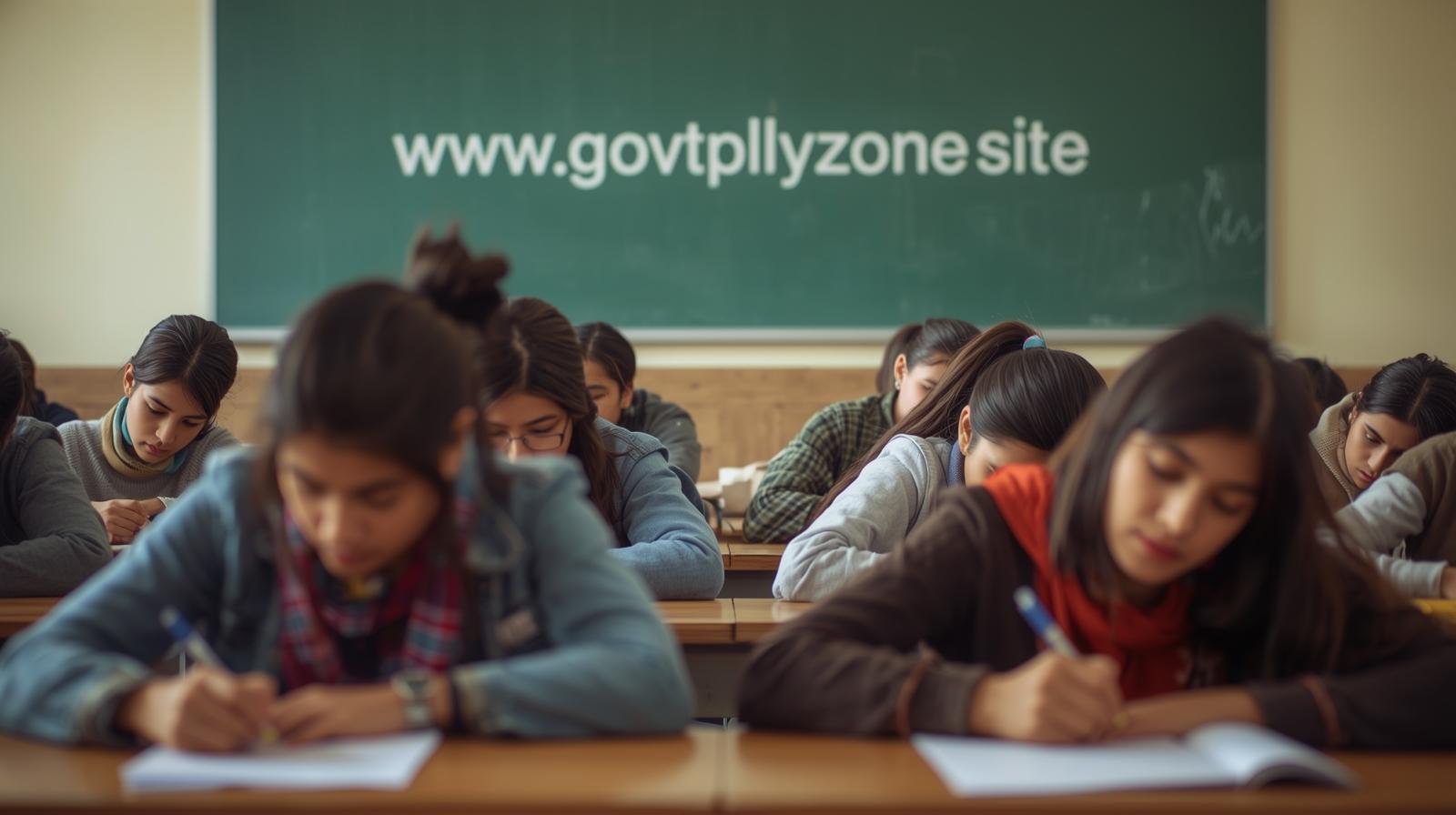UPSC Combined Geo-Scientist & Geologist Examination 2025 – Notification, Syllabus, Eligibility & Exam Pattern
Complete guide to UPSC Combined Geo-Scientist & Geologist Exam 2025. Find notification highlights, branch-wise syllabus (Geology, Geophysics, Hydrogeology & Chemistry), eligibility, exam stages (Prelims & Mains), vacancy expectations, previous cutoffs, career roles and a detailed preparation roadmap for aspirants.
Last updated: Nov 13, 2025
UPSC Combined Geo-Scientist & Geologist Examination 2025
Notification, Syllabus, Eligibility & Exam Pattern — full guide for geo-science aspirants.
Read Notification
Exam
Union Public Service Commission — Combined Geo-Scientist & Geologist Examination (Categories: Geologist, Geophysicist, Chemist, Hydrogeologist).
Eligibility
M.Sc. / B.Tech (as specified) in relevant discipline. Age & nationality requirements per notification — detailed below.
Stages
Prelims (Objective) → Mains (Descriptive/Objective as per post) → Documents/Interview (if applicable) → Final Merit.
UPSC Combined Geo-Scientist & Geologist Notification 2025 — Key Highlights
The official UPSC notification contains: number of posts & branch wise vacancies, eligibility criteria, age limits, important dates, application process, syllabus and exam scheme. Read the PDF carefully before applying.
Important Dates (Example)
- Notification Release: Nov 13, 2025
- Apply Online Window: Nov 14, 2025 – Dec 04, 2025
- Prelims Exam (Expected): Feb 2026
- Mains Exam (Expected): May 2026
Always download the authoritative PDF from upsc.gov.in and check for corrigenda or updates.
Eligibility — Educational Qualification, Age & Nationality
Nationality
A candidate must be a citizen of India, or a subject of Nepal/Bhutan, or a Tibetan refugee who came to India before Jan 1962, or a person of Indian origin migrated from specified countries as defined in the notification.
Educational Qualifications (Post-wise)
Minimum educational requirements vary by post — common requirements:
- Geologist (Group A): M.Sc. in Geology or applied Geology; or B.E./B.Tech in relevant branch with geology specialization (check notification).
- Geophysicist (Group A): M.Sc. in Geophysics or Applied Geophysics; or B.Tech in relevant branch with geophysics topics.
- Chemist (Group A): M.Sc. in Chemistry, Applied Chemistry or Industrial Chemistry.
- Hydrogeologist (Group A): M.Sc. in Geology / Hydrology or related specialization in hydrogeology.
Age Limit
Typically 21–32 years as per notification (varies by category and post). Relaxations apply for OBC, SC/ST, Ex-Servicemen and others as per government rules.
Exact degree equivalence and experience (if any) are specified in the notification — verify before applying.
Exam Pattern — Prelims & Mains (Overview)
UPSC Combined Geo-Scientist & Geologist Exam usually has two papers in Prelims (objective), followed by papers in Mains specific to the discipline. Some posts may include a practical/component or interview/document verification stage. Below is a generalised pattern — always follow the official notification for exact scheme and marks.
| Stage | Paper | Marks | Type |
|---|---|---|---|
| Prelims | Paper I — General Studies & Aptitude | 200 | Objective |
| Prelims | Paper II — Subject Specific (Geology/Geophysics/Chemistry/Hydrogeology) | 300 | Objective |
| Mains | Multiple papers — Theory & Problem Solving (varies by post) | Varies (e.g., 600–900 combined) | Descriptive / Objective |
Prelims is used to shortlist candidates for Mains. Some disciplines emphasize practical/problem-solving skills in Mains. Final selection may include interview/document verification for certain posts.
Prelims Syllabus — Paper-wise Topics
Paper I — General Studies & Aptitude (Common)
- General Awareness — environment, ecology, natural resources and basic Earth science concepts
- Mathematical aptitude and numerical ability (basic)
- Analytical reasoning and data interpretation
- Basic geology-related awareness (plate tectonics concept level)
Paper II — Subject Specific (Examples)
Geology (Prelims)
- Physical Geology: Structure of the Earth, Minerals & Rocks, Crystallography
- Stratigraphy & Palaeontology
- Structural Geology: Folds, Faults, Joints
- Geomorphology, Engineering Geology & Economic Geology
- Remote Sensing & GIS basics (as applicable)
Geophysics (Prelims)
- Seismology basics, Gravity & Magnetic methods
- Electrical & Electromagnetic methods, Wave propagation
- Exploration geophysics fundamentals, basic geophysical instruments
- Signal processing & basics of interpretation
Chemistry (Prelims)
- Analytical chemistry basics, inorganic & organic core concepts
- Environmental chemistry basics linked to geoscience
Hydrogeology (Prelims)
- Groundwater occurrence, aquifer properties
- Hydrological cycle, water quality parameters
- Basic groundwater exploration & management concepts
Mains Syllabus — Discipline-wise Detailed Topics
Geology — Mains (Indicative)
- Advanced Mineralogy & Petrology (igneous, metamorphic, sedimentary)
- Structural Geology — kinematic/dynamic analysis, microstructures
- Stratigraphy & Basin Analysis
- Palaeontology and Biostratigraphy — fossil identification, zonation
- Applied Geology: Mineral exploration, Mining geology, Geological hazards
- Remote Sensing & GIS applications in geology
Geophysics — Mains (Indicative)
- Potential field methods — gravity & magnetic interpretation
- Seismic methods — ray theory, seismogram interpretation, reflection/refraction
- Electrical & Electromagnetic methods and interpretation
- Signal processing, inversion concepts and geophysical modeling
- Geophysical instrumentation and survey design
Hydrogeology — Mains (Indicative)
- Groundwater hydraulics, Darcy’s law, transmissivity & storativity
- Aquifer test analysis, well hydraulics
- Groundwater exploration & sustainable groundwater management
- Contaminant transport, water quality and remedial measures
Chemistry — Mains (Indicative)
- Analytical techniques used in geology (AAS, XRD, XRF, ICP-MS)
- Geochemistry basics, trace element geochemistry
- Environmental geochemistry — pollution, remediation
- Physical & inorganic chemistry relevant to geological processes
Mains usually combines theory, problem-solving and interpretation questions. Expect map-based questions in geology and data-interpretation tasks in geophysics and hydrogeology.
Vacancy 2025 (Expected) & Career Roles
UPSC Geo-Scientist vacancies vary each year; 2025 is expected to have 200–350 vacancies across disciplines (Geologist, Geophysicist, Hydrogeologist, Chemist) depending on department requirements.
Typical Career Roles
- Exploration geologist/geophysicist for mineral & energy resources
- Hydrogeologist for groundwater surveys & water resource management
- Environmental geochemist / analytical chemist in environmental monitoring
- Field geologist in Central/State Geological Surveys
- Technical positions in Mines, Oil & Gas, Geological Survey of India (GSI), Central Ground Water Board (CGWB), and other ministries
Salaries align with central government pay scales; role often includes fieldwork, lab analysis, mapping, policy inputs and leadership positions with experience.
Previous Cutoffs — Reference (Indicative)
| Post | Prelims Cutoff (Approx) | Final Merit (Approx) |
|---|---|---|
| Geologist | 320–360 | 420–480 |
| Geophysicist | 305–345 | 400–460 |
| Hydrogeologist | 300–340 | 390–450 |
| Chemist | 295–335 | 380–440 |
Cutoffs depend on difficulty, number of vacancies, and candidate performance. Use these ranges to set target scores; prepare to score substantially above prelim cutoffs for a safe margin.
Preparation Strategy — 9–12 Month Roadmap
Successful preparation combines strong fundamentals, field-practical knowledge, map-reading skills and regular practice of MCQs and descriptive answers. Below is a suggested roadmap that balances theory, application and field drills.
Months 1–3: Foundation
- Review core M.Sc./B.Tech subjects (mineralogy, petrology, structural geology, geophysics basics)
- NCERTs & standard undergraduate texts for basics and concepts
- Start daily MCQ practice for Prelims
Months 4–7: Advance & Application
- Deep-dive into applied topics: exploration methods, geophysical interpretation, hydrogeology modelling
- Map-reading practice & case studies
- Start writing long-form answers for Mains topics
Months 8–10: Revision & Mocks
- Regular full-length prelims mocks & sectional tests
- Previous-year papers & answer writing for mains
- Refine field notebooks and lab-report style answers
Months 11–12: Final Touches
- Revision of important formulas, maps and field techniques
- Mock Mains & timed answer writing
- Prepare documentation & fitness for field postings
Join subject-specific test series for geophysics/geology/hydrogeology if available, and discuss map-based problems in peer groups for quicker learning.
Recommended Books & Online Resources
- General Geology: Press & Siever / Reed & Richards for fundamentals, Indian standard geology texts
- Mineralogy & Petrology: Nesse, Phillips
- Structural Geology: Hobbs, Means & Williams; Davis
- Stratigraphy & Palaeontology: Boggs & Walker
- Geophysics: Kearey, Telford & Sheriff; methods books on seismics, gravity & magnetics
- Hydrogeology: Todd & Mays; Freeze & Cherry
- Chemistry: Relevant analytical chemistry & geochemistry texts; manuals for XRD, AAS
- UPSC previous year papers, GSI publications, CGWB reports, and research papers for advanced topics
Use online resources: GSI reports, Indian Minerals Yearbook, national lab publications, and freely available remote-sensing tutorials for GIS & satellite interpretation.
Fieldwork & Practical Tips — A Competitive Edge
Field skills and practical familiarity with mapping, sample collection, logging and lab techniques are highly valued. Even if the exam is theory-focused, real-world understanding helps answer applied mains questions and interviews.
- Practice topographic map reading and contour interpretation
- Understand drill logs, borehole data & basic lab outputs
- Gain hands-on experience with basic instruments (compass, clinometer) and software (QGIS, basic seismic processing tools)
- Prepare concise field-notes and labeled sketches for use in answers
Aspirant Gallery — Study & Field Sessions

Group revision & map discussion.

Note-making for field techniques.

Field notebook & sample labeling.

Lab techniques & analytical practice.
Frequently Asked Questions (Geo-Scientist & Geologist Exam 2025)
Who is eligible to apply for Geologist / Geophysicist posts?
Is there an interview for Geo-Scientist posts?
Are practicals or map questions asked?
How do I prepare for geophysics?
What are the best resources for hydrogeology?
GovtApplyZone | Geo Scientist 2025 | Geologist 2025 | UPSC Geo-Scientist | UPSC Geology syllabus | GSI | Hydrogeology | Geophysics
